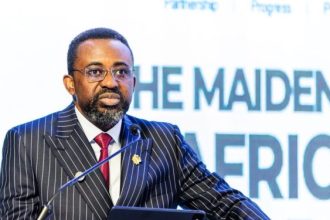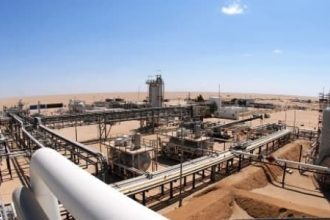The Association of Ghana Industries (AGI) has entreated the government to implement measures to boost local businesses else Ghana may lose out despite serving as the hub for trade across the entire continent.
AGI President, Seth Twum-Akwaboah, wants the governmental support directed at key business sectors to increase their capacity to produce for export.
Ghana won the bid to host the Secretariat of the African Continental Free Trade Agreement (AfCFTA) aimed at a fostering easy transnational commerce on the regional bloc.
President Nana Akufo-Addo handed over the secretariat after completion to the African Union (AU) on August 17, 2020, ahead of the operationalisation of the AfCFTA in 2021.
Business leaders, government officials and several associations have expressed excitement over the prospects, but Mr Twum-Kwacha is calling for action beyond jubilation if Ghana is to gain.
“It might as well be that you have the secretariat here. However, you may not necessarily win the competition when it comes to import and export of goods,” Mr Twum-Akwaboah told theghanareport.com in an exclusive interview.
“The government can pick and choose specific areas that would have a multiplier effect in the value chain and provide support to expand the capacity of those industries”.
To buttress his point, he said a country such as South Africa or Egypt with bigger industrial capacities can produce at a cheaper cost and flood the Ghana market with “their products in spite of you having the secretariat because the secretariat does not guarantee market access or export volumes.”.
Therefore, he advised that: “We should be cautious in overly celebrating the location of the secretariat in Ghana because if you do not develop your capacity you might not benefit much or from anything”.
As the host of AfCFTA, Ghana would have a high obligation to compliance protocols.
However, other countries “could take advantage of you because while you are ensuring compliance others would not be complying and would have the benefit of protecting their markets”.
Mr Twum-Akwaboah pointed out that such a situation could be countered with sanctions or other measures, but sometimes before the intervention “the effect on your products would have been devastating”
He, therefore, suggested optimal levels of adherence to ever guideline for all participating states to ensure a level playing field.
“Therefore, conflict resolution mechanisms should be in place as soon as possible” to resolve such a situation when they arise,” he pointed out.
He wants the government to partner the private sector to spur industrial development at competitive prices while developing skills and adding value to raw materials.
Advantages for Ghana
As host of the secretariat, the country will be the focal point of the majority of business meetings.
Expenses that would have otherwise been incurred in travelling to other countries by Ghanaian officials would be curtailed and could be invested in other productive sectors, he noted.
Access to trade information will be enhanced and readily available to local participants.
He was of the view that grievances involving Ghana could easily be resolved faster.
Above all, there will be many international conferences which will boost tourism, hospitality, aviation businesses and other allied business channels, he added.
“Jobs will come from all these angles,” he expressed confidently.
With the government strategically lifting the automobile industry, the business leader said such initiatives could be replicated in other strategic industries where mass production can be executed at a lower cost.
He advocated incentives especially for small enterprises “whom on their own would not be able to enter the export market”.
The government could also group such common businesses and provide standards and specifications with a central body supervising the exports after production.
He also encouraged the development of professionals and experts for negotiations, conflict resolutions and trade law in anticipation of the expansion expected.
Even though he welcomed tax holidays by the government to business, he advised that it should be in tandem with harmonised tariffs of the regional bloc to avoid conflicts.
What is AfCFTA?
The African Continental Free Trade Area (AfCFTA) is a free trade area which created by the African Continental Free Trade Agreement among 54 of the 55 African Union nations.
On March 21, 2018, in Kigali, 44 African states signed an agreement to establish the AfCFTA.
Over 25 African countries have ratified the agreement and the implementation takes off in 2021.
The AfCFTA Agreement is considered the largest free trade agreement since the World Trade Organization was created and constitutes a prime example of the continent’s current trend towards economic integration.
If all 55 African states ratify the AfCFTA Agreement, it would cover 1.2 billion people with combined economies of over US$2.5-trillion.
It is estimated that intra-African trade will increase by as much as 35 billion US dollars per annum or 52% by 2022.
















